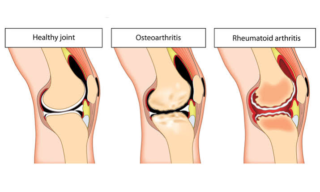Conditions
Medical Conditions We Treat ..
Musculoskeletal Conditions
Joints & Bones
Frozen Shoulder (Adhesive Capsulitis)
Neck & Spine
Degenerative Disc Disease(DDD)
Herniated Discs(Bulging Discs)/Slipped Disc
Muscles
Neurological conditions
Knee pain
Knee pain is a common symptom in people of all ages. It may start suddenly, often after an injury or exercise. Knee pain also may begin as a mild discomfort, then slowly get worse.
Causes
Knee pain can have different causes. Being overweight puts you at greater risk for knee problems. Overusing your knee can trigger knee problems that cause pain.
Medical conditions that lead to knee pain include the following:
- degenerative tissue disorders, such as osteoarthritis
- infections
- obesity
- auto-inflammatory disease, such as rheumatoid arthritis
- tendinitis, an inflammation of a tendon, leading to pain when walking upstairs
- bursitis, an inflammation resulting from overuse
- chondromalacia patella, or damage to the cartilage below the kneecap
- gout, a type of arthritis
- a Baker’s cyst, when fluid builds up behind the knee
- a tumor, either benign or malignant in the knee.

Symptoms
- weakness of the knee and an inability to stand properly or fully lengthen out the knee
- popping sounds as the knee flexes or straightens
- swelling and stiffness around the knee
- redness or warmth throughout the knee
Diagnosis
Physical examination of the knee will be done to determine the cause of the pain. If the diagnosis is not clear or symptoms do not improve a doctor may order one of the following:
- Blood tests and/or a standard knee X-ray – This may help to rule out some types of arthritis or inflammation.
- MRI scan- A test that shows details of the knee joint.
